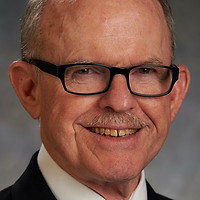Our Community
Academic Members

Erik Alexanian
University of North Carolina at Chapel Hill

Ana Bahamonde
University of California, Riverside

University of Tennessee - Knoxville

The Scripps Research Institute
Industry Members

AbbVie

Lilly

Novartis
CIC Alumni

Pomona College
Prof. Nicholas Ball grew up in Chattanooga, TN. He received his B.A. in Chemistry at Macalester College in 2005 and completed their Ph.D. in 2011 under Prof. Melanie Sanford at the University of Michigan working with C–F and C–CF3 bond formation from high-oxidation state Pd. In 2010, he headed to the California Institute of Technology to pursue his postdoctoral studies with Prof. David Tirrell as a NIH Postdoctoral Fellow. Prof. Ball started as an Assistant Professor at Amherst College in 2013. In 2015 Prof. Ball joined the faculty at Pomona College and is now an Associate Professor of Chemistry with tenure.
The Ball Research group is interested in developing new metal-catalyzed/-mediated organic reactions. Our focus is to develop methodologies to make and activate sulfur(IV) and (VI) fluorides. In particular we are interested in using sulfur fluorides as a more air and water stable alternatives to traditional synthesis of sulfur-based organic molecules. Our strategy is to achieve this goal by metal-catalyzed activation of sulfur fluorides via sulfur-fluorine exchange (SuFEx) to make sulfonylated compounds using catalysis, electrochemistry, and machine learning. Additionally, we have interest in sulfur (VI) fluorides in cross-coupling chemistry. Prof. Ball’s honors and awards include Henry Dreyfus Teacher Scholar Award, NIH R31, and ACS PRF grants.

Colorado College
Jessica Kisunzu's research interests lie in the field of synthetic organic chemistry, specifically in the study of strained aromatic alkynes (“arynes” – for example, benzyne and related compounds). Undergraduate researchers in her lab are engaged in the investigation of new directions in aryne reactivity and the development of reactions that leverage underused and/or complementary aryne generation methods (e.g., photochemical or electrochemical processes). Her research also incorporates the use of computational tools to analyze and predict reactivity and structure. Jessica received her B.S. at Southern Adventist University and completed her Ph.D. at the University of California, Berkeley with Richmond Sarpong working on the total synthesis of alkaloid natural products. She then conducted postdoctoral research with Helma Wennemers at the ETH Zürich in the area of peptide catalysis before starting as an Assistant Professor at Colorado College in 2017.

University of Utah
To be written













































